From low calories and low sugar to all natural and high protein, find out which healthy snack claims are driving sales
1. Sales of healthier snacks are up by a fifth
2. Healthy means different things to different people
3. Smart retailers take health cues from local schools
4. Exotic fruit can create excitement among shoppers
5. Sugar content is the number one concern for shoppers
6. Nearly two thirds look for calorie count when buying snacks
7. One in four shoppers avoid artificial sweeteners
8. Nearly half of young people think plant-based is healthier
9. Meat snack sales have doubled in five years
10. A third say money troubles make them eat less healthily
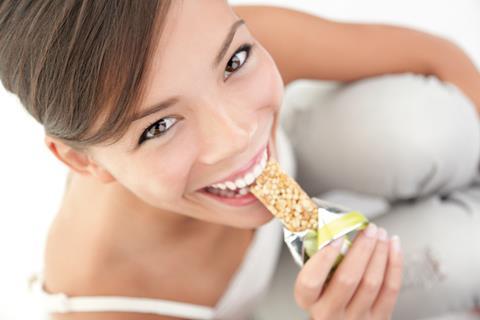
1. Sales of healthier snacks are up by a fifth
It looks like Britain is on a health kick. For total sales of healthier alternatives to traditional snacks are up by more than a fifth. “The health segment is growing at 20.2% year-on-year,” says KP Snacks trading director Matt Collins, citing NielsenIQ.
Eat Real, which makes snacks featuring lentils, quinoa, chickpeas & veg, has witnessed 7% year-on-year growth over the past year. “Crisps and snacks continue to be important sales drivers in c-stores, thanks to their small size, low costs and high margins,” says Helen Pomphrey, marketing director at Eat Real. “Consumers are increasingly demanding of their snacks, viewing health as a spectrum with traditional sector drivers (calories, fat) alongside more emergent claims such as plant-based and high in protein.”
It’s therefore crucial that convenience retailers tailor snack ranges for local tastes. “The lens on wellbeing is widening and health needs are fragmenting,” says Allison Wallentin, convenience category manager at Saputo Dairy. “For retailers, there’s no one size fits all solution. It’s about offering a selection of quality products, at the right price, supported by the right messaging.”
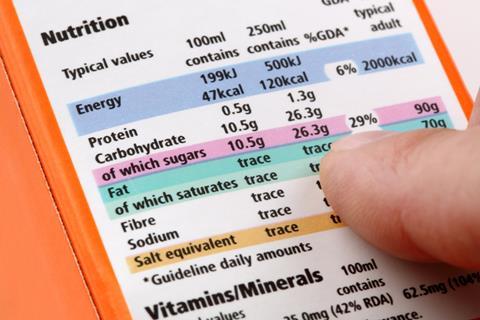
2. Healthy means different things to different people
So don’t go swapping your all your sweets and salty snacks for mung beans and lentils just yet. “Healthy means different things to different people,” adds Collins. “For some it’s a focus on positive health – increased protein or fibre, for example – but for others, it’s portion control or calorie reduction.”
Taste is still crucial, of course – no one’s going to buy low salt mung bean crisps more than once if they taste like cardboard, after all. The importance of taste – coupled with the new regulations governing how high fat, salt and sugar (HFSS) products can be sold in larger stores that came into force last year – explains why manufacturers are investing so much on healthier snacks.
Still, snacks won’t fly off the shelves just because they carry certain health claims. “Confectionery and traditional savoury snacks are still massive sellers for us – that’s not changed at all,” says Anita Nye, store manager at Premier Eldred Drive in Orpington, southeast London.
“Obviously some of the big confectionery manufacturers have been reducing calories and bringing out lower calorie chocolate bars but they didn’t do well for us, even when we had them on promotion. Sometimes I think these companies just want to be seen to be doing the right thing. It’s easier with some things than it is with other products, like chocolate.”

3. Smart retailers take health cues from local schools
Instead of taking her cues from manufacturers, Anita has teamed up with local schools for guidance on the healthier snacks that are likely to sell well. “There’s a junior school right opposite us which is very hot on healthy eating and they even go through kids’ lunchboxes,” she explains.
“We noticed that the kids were coming in with their parents to get snacks for school so we started working with the school to ensure we were stocking the right stuff. Carrot crisps and fruit snacks from brands like Bear and Kiddylicious have been doing very well.”
Anita then launched a loyalty card, awarding kids with stamps for every healthy snack under 100 calories per portion that they bought. “Once they’d collected 10 stamps they would win a prize like pencils,” she says. “This was before Covid and we got all the local schools involved. Demand for healthy snacks dwindled during Covid but we’re planning on relaunching it again soon.”
ADVERTISEMENT
Fibre One offers flavour and function
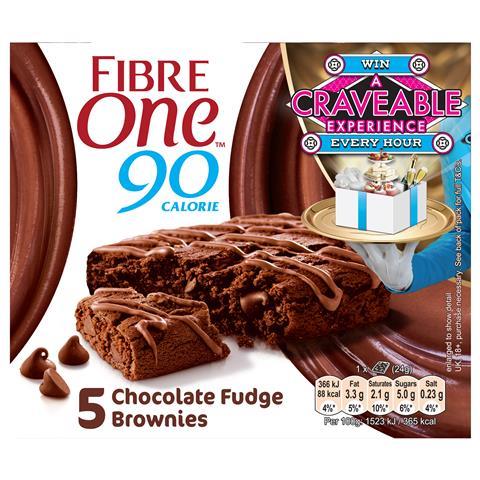
Fibre One is the number one brand within the diet management category*, with a portfolio that not only tastes great but offers functional benefits thanks to a high fibre content. The brand’s hugely popular products, including its Chocolate Fudge Brownie bar, are available in wholesalers.
*Period: 52 Weeks | Currency: Local Currency | Category: BARS | Market: Total Coverage including Discounters | (Values, Volume & Units are in MM)
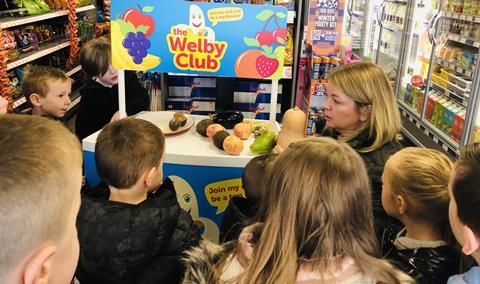
4. Exotic fruit can create excitement among shoppers
It’s important not to overlook more down-to-earth snacks too, says Mohammed Razzaq, who runs a Spar shop in Blantyre, South Lanarkshire. “As part of the CJ Lang’s Healthier Living scheme we have days where we give away fruit to the kids to let them try new things,” he says.
“We have a fruit display right at the front of the store so it helps move them away from the sugary snacks and we offer things like mango, pineapple and passion fruit – things that they wouldn’t normally see. It’s nice and colourful and gets them talking. It makes a real difference to our sales and for the following few weeks – we see a real uptake in fruit sales.”
Encouraging younger shoppers to make healthier choices is crucial, adds Anita down in Orpington. “When you get to my age it’s difficult to change your habits,” she says. “But by introducing people to healthier choices at a younger age we are far more likely to see lasting change in the food choices people make.”

5. Sugar content is the number one concern for shoppers
Concerns over sugar, combined with the HFSS legislation, could result in people switching up their snacks, claims Dole Sunshine Co. “The HFSS regulations will have a pretty big impact on categories like confectionery, crisps, cakes and sweet biscuits, which will hopefully encourage consumers to make healthier choices in their snacking,” says sales director Andrew Bradshaw.
“This may not be just a healthier version of their old snack but considering new snacks altogether and retailers can play their part by promoting these healthier snacks in-store too. There’s no doubt that consumers have become even more health aware since the start of the pandemic and unsurprisingly this has translated into them being more heath conscious with their food choices.”
Bradshaw points to a recent Streetbees survey of nearly 50,000 people worldwide for evidence of the health considerations that are most important to shoppers. “The number one attribute sought when deciding on what to eat and drink was ‘no added or low sugar’ content,” he says.
“This should be front of mind for retailers when considering their healthier snacking offer and confirms Dole’s fruit in juice and fruit in jelly cups as very credible options, as all the variants have zero added sugar, artificial sweeteners, or flavourings, are less than 100 calories per serving, and come in convenient and recyclable packs which can be eaten at home or on the go.”

ADVERTISEMENT
FULFIL leading healthier growth in forecourts
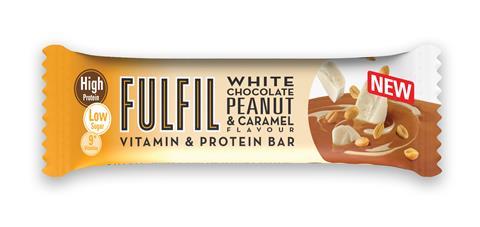
At FULFIL we know that taste is paramount to the consumer when choosing healthier snacks and we pride ourselves on delivering great taste across all of our protein bars. This is reflected in our performance as the No.1 contributor to growth in the forecourt and travel channel with sales growing +119% year on year.
In 2023 we are launching two new flavours to our 55gm range; White Chocolate Peanut and Dark Salted Caramel. Each bar contains 20gm of Protein, is Low in Sugar and uniquely contains 9 Vitamins that contribute to 30% of the recommended daily allowance. These new additions build on our existing 55gm range, designed to meet the bigger eat and fuel mission, and complement our 40gm range focused on the Impulse On The Go mission.
FULFIL Bars are widely available across major UK Forecourt & Travel retailers including BP, Shell, Eurogarages, MFG, Moto & Welcome Break.
- Source: IRI 52 Week Value Data to November 2022
6. Nearly two-thirds look for calorie count when buying snacks
Portion control and clearly marked calorie-counts are also of growing importance for shoppers. Saputo, for example, says the strong performance of its range of 24g Cathedral City Snack Bars, which all contain 100 calories or less, is partly down to the products’ convenient portion sizes.
“A naturally nutrient rich foodstuff that is high in protein, a good source of calcium and carries a whole host of other vitamins and minerals essential to bodily function, cheese has the ability to deliver an indulgent, sensory eating experience while also fulfilling a widely recognised role as part of a balanced diet,” says head of cheese marketing Neil Stewart.
Bradshaw at Dole Sunshine Co adds that changes in many people’s working lives since the pandemic also present opportunities for healthier snacks. “With hybrid working here to stay, many consumers are spending at least some of their working week at home which means snack breaks are more likely than ever,” he says.
“However, the pandemic has made consumers more aware of their health and what they put in their bodies so snacks that can be considered healthy but indulgent have grown in popularity and will continue to do so.”
He points to a recent Mintel report as proof. “Portion control is growing in popularity as consumers are increasingly looking for single serve snacks which are clearly highlighted to be less than 100 calories,” he says. “This report confirms that 61% of consumers are looking for this calorie count when buying snacks.”

7. One in four shoppers avoid artificial sweeteners
Many people also want snacks that they perceive to be ‘natural,’ with 26% of consumers reporting that they actively avoid products that contain artificial sweeteners and other synthetic ingredients [Mintel]. “Healthier snacking isn’t necessarily about the lowest calories or fat,” says Ben McKechnie, MD of healthier snacking wholesaler Epicurium.
“It is about something being better for you, made using ingredients that you would recognise in your kitchen cupboards rather than an uber-processed option filled with fillers and unpronounceable ingredients. Indulgence is always about high fat, sugar, or salt – it’s about rich tastes, textures, and a feeling of naughtiness.”
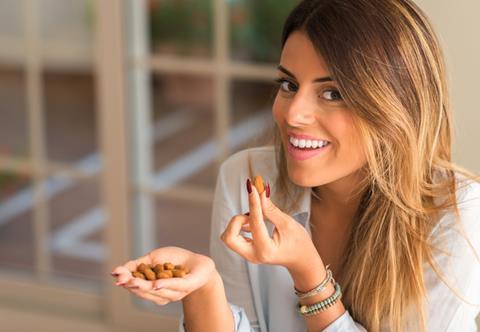
8. Nearly half of young people think plant-based is healthier
Many equate ‘naturalness’ with plant-based origins, contends Collins at KP. “Plant based eating trends are here to stay, with more consumers actively choosing diets which incorporate more veg and plant-based foods,” he says.
“Forty six per cent of 25-44 year olds believe it’s healthier and 38% believe it’s better for the environment [IGD]. Nuts in particular are perfect for those looking for a healthy snack with natural and functional benefits. Nuts have been recognised as an important part of a healthy and sustainable diet. They are excluded from HFSS legislation and represent a huge opportunity for growth.”
Pomphrey at Eat Real agrees that interest in plant-based is fuelling growth of healthier snacks. “In 2021, 40% of people aged 18 to 44 consumed a plant-based alternative at least once a month,” she says, citing Mintel. “Consumers are starting to adapt their convenience snacking habits to suit a more plant-based lifestyle.”
Whatever the health claim, however, taste is still paramount. “The reality is that consumers still expect snacks to taste great, regardless of the HFSS legislation, so we’ve worked hard to make sure our new non-HFSS Rice Crisps really deliver,” says Scott Cooper, MD of Chika’s Snacks, claiming that th firm has focused on “big flavours, more spice, and added crunch”.
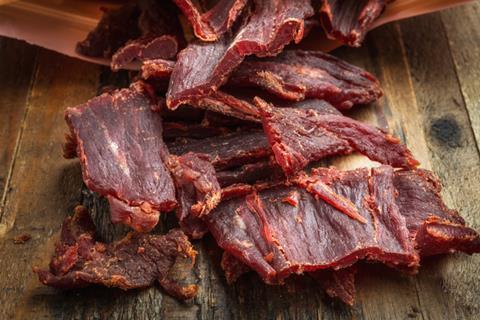
9. Meat snack sales have doubled in five years
But for every consumer trend, there’s a countertrend. And as rising demand for healthier snacks helps fuel the plant-based trend, many shoppers are also snacking on meat products to sate the appetite and get a protein hit.
“Meat snacking is one of the fastest growing categories across total stores in the UK. It has doubled in size over the last five years,” says Laura Trivulzio, marketing director at Peperami and Jack Link’s, citing NielsenIQ. “The growth in the market is down to its versatility in flavour as well as better-for-you functions and great marketing by the brands leading the growth.”

10. A third say money troubles make them eat less healthily
There’s a fly in the ointment, however: the economic downturn. Ninety four per cent of households say food is where they’ve felt price inflation most acutely [ONS 2022] and during past periods of economic difficulty, health has fallen down the list of priorities for consumers.
“Thirty two percent of people admit that money concerns cause them to eat less healthily,” says Bradshaw at Dole Sunshine Co, citing Mintel research. “This really highlights the importance of retailers and brands who are committed to supporting healthier choices for their customers, and specifically helping people to eat healthily on a budget.”
Anita agrees. “Price is so important, especially now,” she says. “A lot of the plant-based stuff and healthier snacks are twice the price than standards snacks. Our store is on a housing estate and a lot of people are on benefits; they are happy to buy junk food because it’s cheaper.”
If Britain’s health-kick is not going to get kicked into the long grass, maybe it’s time healthy snack brands lowered their prices?


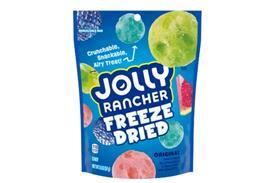






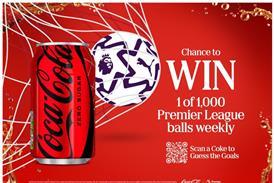
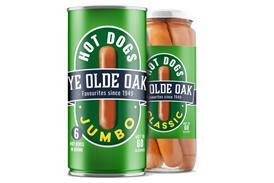


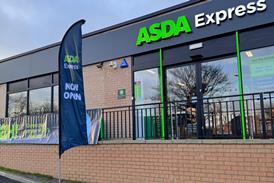






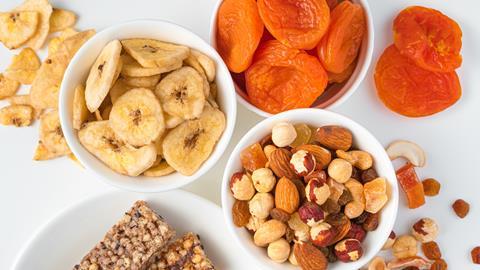
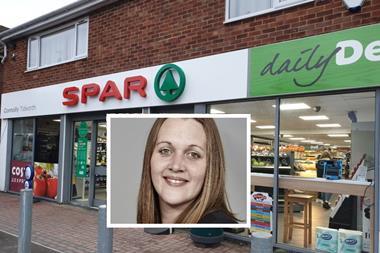
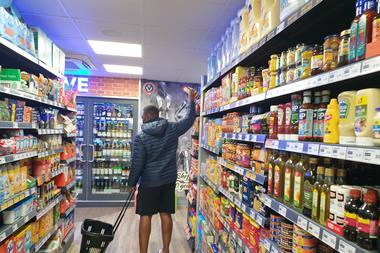
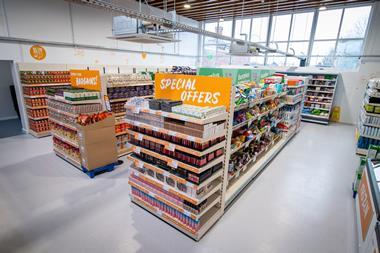
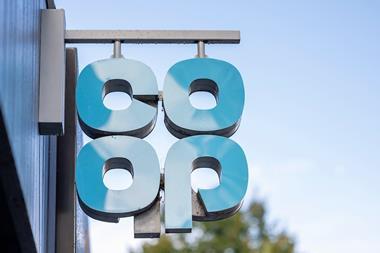
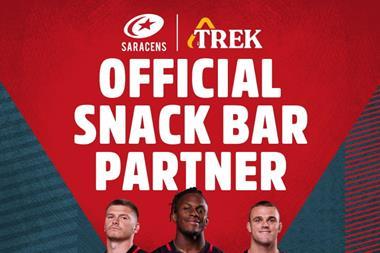
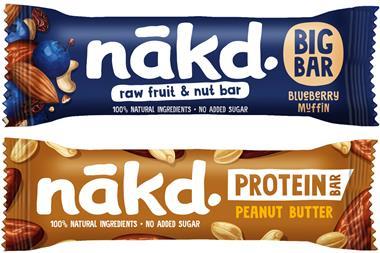

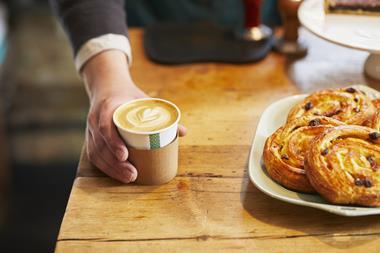
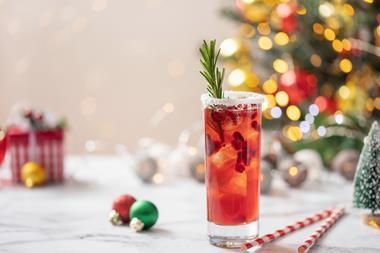



No comments yet